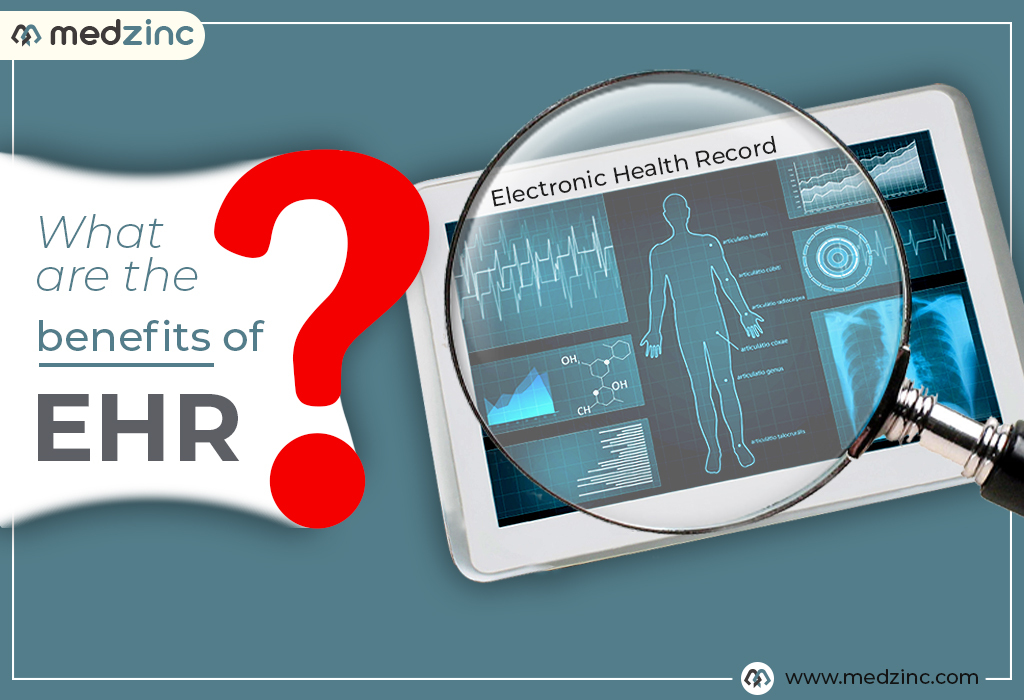
What are the Benefits of EMR ?
The EMR, or electronic medical records, is a shared record that all of the patient's providers can access, which can improve communication and care coordination. The benefits of EMR extend beyond
- clinical decision-making,
- Research, and
- public health reporting.
EMR is especially important for single-practice facilities and family physicians who do not regularly share patient records across disciplines. But you may be wondering if these Emr benefits are extensive enough to persuade you to use the EMR system in your medical practice. Then you've come to the right place because that's what this blog is all about. This blog will not only familiarise you with the benefits of EMR for your medical practises. However, it will also provide you with a comprehensive assessment of whether it is worthwhile for you to select an EMR system for your medical practice.
What is EMR?
EMR, or electronic medical records, are the digital version of the paper records that have been used to store patient information for years. EMRs are used by healthcare providers to record, store, and share patient health information. The use of EMR is to track clinical data, such as diagnoses and treatments, and to document patient history. EMRs can also be used to
- Schedule appointments,
- Order prescriptions, and
- Bill insurance companies.
Benefits of EMR
The electronic medical record (EMR) is a digital version of the traditional paper chart used to document a patient’s medical care. An EMR can include a patient’s medical history, diagnoses, medications, treatment plans, and laboratory and imaging results. There are many other Potential Benefits of EMR , including :
- Improved quality of care: The EMR can help providers make better-informed decisions about a patient’s care by providing easy access to the patient’s complete medical record.
- Increased efficiency: The EMR can save time by eliminating the need to track down paper records or duplicate tests that have already been done.
- Reduced costs: The EMR can help reduce the cost of care by eliminating duplicate tests and preventing medication errors.
- Improved population health: The EMR can be used to track trends in population health and identify areas where interventions are needed.
- Greater patient engagement: The EMR can help patients take a more active role in their own care by providing them with easy access to their medical records.
Drawback of EMR
The EMR is a powerful tool that has the potential to improve the quality and efficiency of care. However, it is important to note that the EMR is not a panacea. However, there are some potential drawbacks to using EMRs. One concern is that EMRs can lead to physician burnout.
- Loss of billable hours : Physicians who must enter data into EMRs may find themselves spending more time on paperwork and less time interacting with patients. This can lead to feelings of frustration and dissatisfaction with the job.
- Might Increase risk of medical errors: Another potential drawback of EMRs is that they can increase the risk of medical errors. If data is entered into an EMR incorrectly, it can have serious consequences for patients.
- Costly to Implement: Finally, EMRs can be costly to implement and maintain. Hospitals and clinics must invest in hardware and software, and train staff on how to use the system. This can add up to a significant expense.
Is it worthwhile for you to select an EMR system for your medical practice?
After wandering through the drawbacks you might be finding it auspicious to take in the use of the EMR system in your medical practice. Yet, here is the catch. Despite these potential drawbacks, there are many Benefits of EMR that can improve the quality of patient care. When used correctly, they can save time and money, and improve communication between providers. When it comes to making the decision to switch to an EMR system, there are a lot of factors to consider. Overall, it is a big decision that will affect your medical practice in many ways. One key factor to think about is whether or not an EMR system will save you time and money in the long run. Making the switch to an EMR can be a big investment, so you want to be sure that it will be worth it for your practice. Another factor to consider is how an EMR system will impact your workflow. Will it be easy to use and allow you to work more efficiently? Or will it be confusing and cause delays in patient care? The bottom line is that there is no one-size-fits-all answer to this question. Every medical practice is different, so you need to evaluate your own needs and decide if an EMR system is right for you.
Related Post
No results.